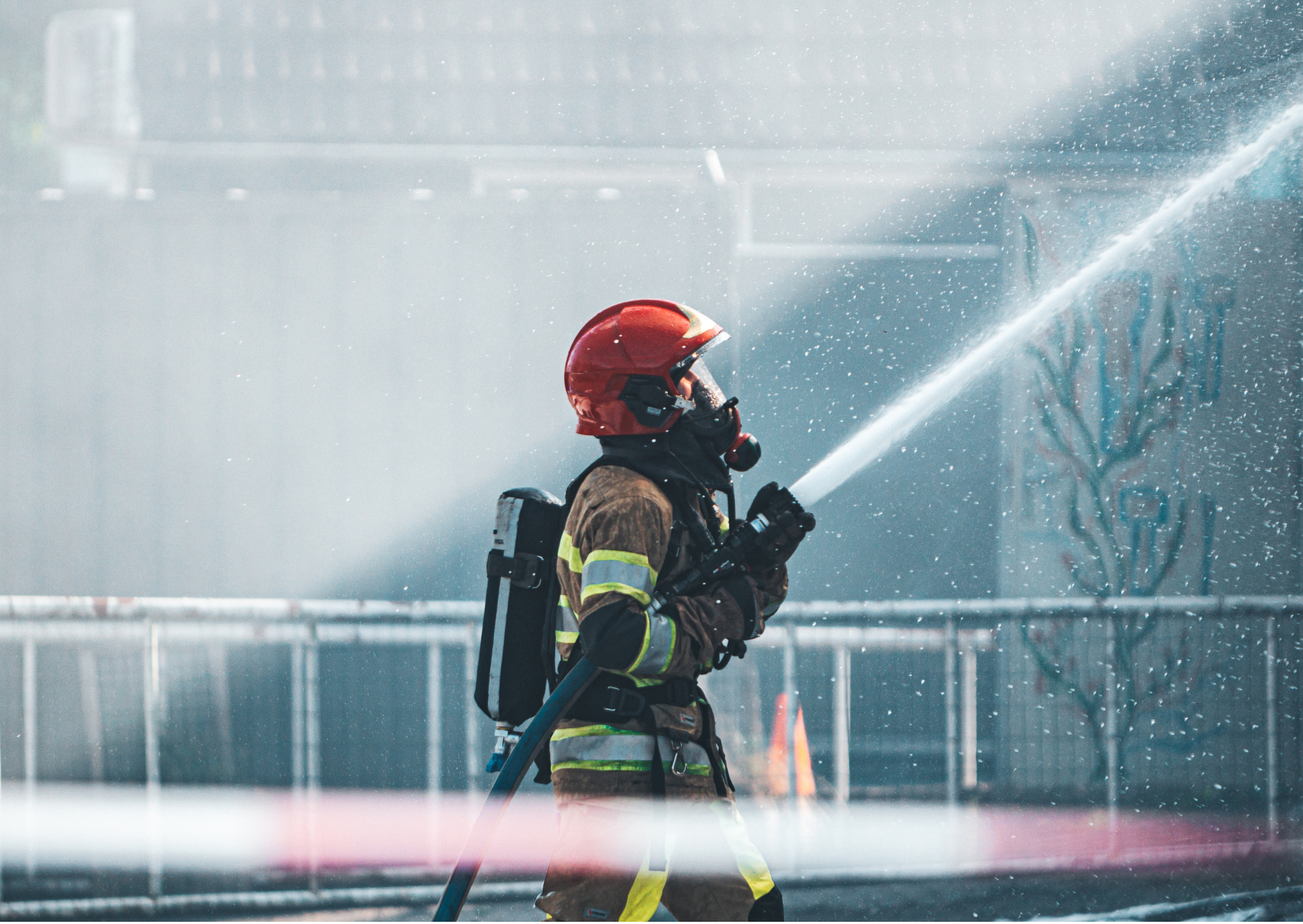Compared to other public employees, firefighters have a higher annual salary.
The reason for this is that firefighters receive benefits in addition to their salary. Firefighters are in a dangerous profession, and their special working conditions and the rank system unique to firefighting organizations have an influence on this.
In terms of employment examinations, differences in annual salary can be seen depending on the examinations passed.
Therefore, the annual salary depends greatly on the measures taken before taking the exam.
Japanese firefighters
Firefighters , who are local government employees, are subject to working conditions based on the ordinances of each municipality, so their salary and working hours vary depending on the municipality to which they belong.

Monthly Income of Firefighters in Japan
Let’s check the average monthly income of firefighters.
According to the website of the Fire and Disaster Management Agency of the Ministry of Internal Affairs and Communications
According to the Statistical Survey of Salaries of Local Public Officers, the average salary of firefighters as of April 1, 2020 is 300,514 yen (average age 38.3 years).
The average salary for general administrative staff is 316,993 yen (average age 42.1 years). General administrative positions include those working at city hall.
The average monthly salary for firefighters is 93,496 yen, which includes mobilization allowance.
Allowance Features
In Japanese firefighting organizations, there is a rank system due to the need to clarify the chain of command and control in EMS activities and to lead the organization.
In addition, the duties of firefighters are characterized by the highly specialized nature of their duties, such as maintaining a 24-hour readiness to respond immediately in the event of a fire or other dangerous disaster.
It is not appropriate to make additional adjustments to firefighters, who have a rank system and are highly specialized, under the same salary structure as general employees.
Therefore, in order to maintain an appropriate salary level, a special salary schedule different from that of general employees is adopted.
Three reasons why salaries are so high
Benefits unique to firefighters
Firefighters, who are ready to go out 24 hours a day and perform their duties in the field where danger is always present, are entitled to benefits that are not commonly heard of in other professions.
These include a dispatch allowance, a late-night work allowance, a holiday work allowance, and an emergency allowance, all of which are unique to firefighters.
In addition, there are allowances for hazardous work, working at heights, and other allowances that take into account the nature of the job.
One allowance is not necessarily a high amount. It may be as little as a few hundred yen.
However, since multiple allowances may be provided for a single mobilization, the total amount of allowances can be high depending on the conditions at the disaster site and the number of mobilizations.
Bonuses are paid on a steady basis.
Bonuses for public employees, including firefighters, are not affected by economic downturns. Bonuses are also paid even in cases of poor performance.
The calculation method, payment dates, and eligibility for bonuses for civil servants are set by law, making it difficult for bonuses to be affected by the economic environment.
When determining bonuses for local civil servants, there are minor differences in the calculation methods used by each local government, but basically they conform to the bonus amounts paid to national civil servants.
Retirement benefits are high.
Retirement benefits for firefighters and other local government employees are determined by the rate of pay determined by the reason for retirement and length of service, monthly salary at the time of retirement, and skills and other contributions.
The higher the “grade” indicating the level of skill at retirement, the higher the adjustment amount, so there will be differences in the amount of retirement benefits paid even among employees with the same length of service.
In the case of firefighters, many of them continue to work from the time they begin employment until they reach retirement age, and many employees tend to receive payments that reach the maximum amount of years of service.
While retirement benefits are high, it is also true that they are gradually becoming lower than they were a few years ago.
What can be done to maximize salary increases?
Become an EMT.
I am a former firefighter and was once told, “If you want to make money, become a paramedic.
According to the Fire and Disaster Management Agency of the Ministry of Internal Affairs and Communications, the number of emergency calls by ambulance vehicles in 2022 was 7,229,838 (up 1,036,257 or 16.7% from the previous year) and the number of people transported was 6,216,909 (up 725,165 or 13.2% from the previous year). Both the number of emergency callouts and the number of people transported increased significantly from the previous year, and the number of people transported was the highest since the statistics began.
With such a high number of dispatches, it is inevitable that many allowances are given and reflected in salaries.

To pass the advanced exam.
The difference in annual salary is also influenced by educational background.
College graduates and high school graduates have different salary standards from the beginning of their employment.
Take the Tokyo Fire Department as an example,
There is a difference of 30,000 to 40,000 yen between those who passed the Firefighter (Class I) and Firefighter (Class III) recruitment examinations.
When converted to an annual basis, the difference between a college graduate and a high school graduate is several hundred thousand yen. Therefore, it is desirable to take the Firefighter (Class I) Recruitment Examination in order to increase one’s annual income.
As mentioned above, the qualification of a college degree established for the Fire Officer (Class I) employment examination does not necessarily mean that one must have graduated from a university.
It is only an indication of the difficulty level of the examination, and anyone can take the examination as long as they meet the age limit and other eligibility requirements.
A college graduate is absolutely recommended if you want to raise your salary as much as possible, as the salary level remains higher from the time you join the agency until you retire.




コメント